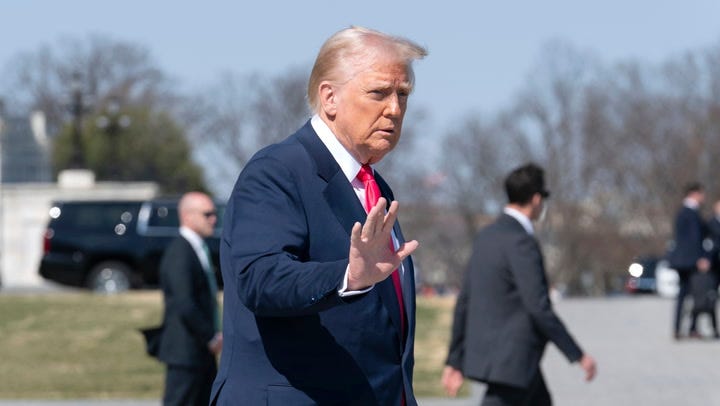Reports: Trump now likely to skip 'sector-specific tariffs' such as on autos

- Auto and car parts may be excluded from the tariffs due to compliance with the USMCA.
- The White House plans to unveil reciprocal tariff measures on April 2, but planning remains flexible.
President Donald Trump's administration is likely to exclude a set of sector-specific tariffs while applying reciprocal levies on April 2, Bloomberg News and the Wall Street Journal reported, citing officials.
Trump said in February that he intended to impose auto tariffs "in the neighborhood of 25%" and similar duties on semiconductors and pharmaceutical imports, but he later agreed to delay some auto tariffs after a push by the three largest U.S. automakers for a waiver.
The exclusion for autos and car parts was based on compliance with the U.S.-Canada-Mexico Agreement negotiated in Trump's first term. Automakers and economists have warned of dire impact, including a dramatic production slowdown and layoffs, if 25% tariffs on Canada and Mexico were to last for any length of time.
Ford CEO Jim Farley, for example, has said they "would blow a hole in the U.S. industry that we've never seen." The three countries are closely integrated, with some auto parts crisscrossing the borders multiple times in vehicle production.
Market indicators were up based on the reports.
"Investors hope that these tariffs will target specific industries, potentially mitigating damage throughout the global supply chain. This situation represents a case of less bad than feared," said Jochen Stanzl, chief market analyst at CMC Markets.
Sector-specific tariffs are now not likely to be announced on April 2, the Wall Street Journal reported Sunday, citing an administration official.
The official added that the White House was still planning to unveil reciprocal tariff measures on that day, although planning remains fluid.
Bloomberg News reported on Saturday that sector-specific tariffs were likely to be excluded.
Trump still intends new reciprocal tariff rates to take effect on April 2, the White House said last week, despite earlier comments from Treasury Secretary Scott Bessent that indicated a possible delay.
The White House did not respond to a request for comment outside regular business hours.